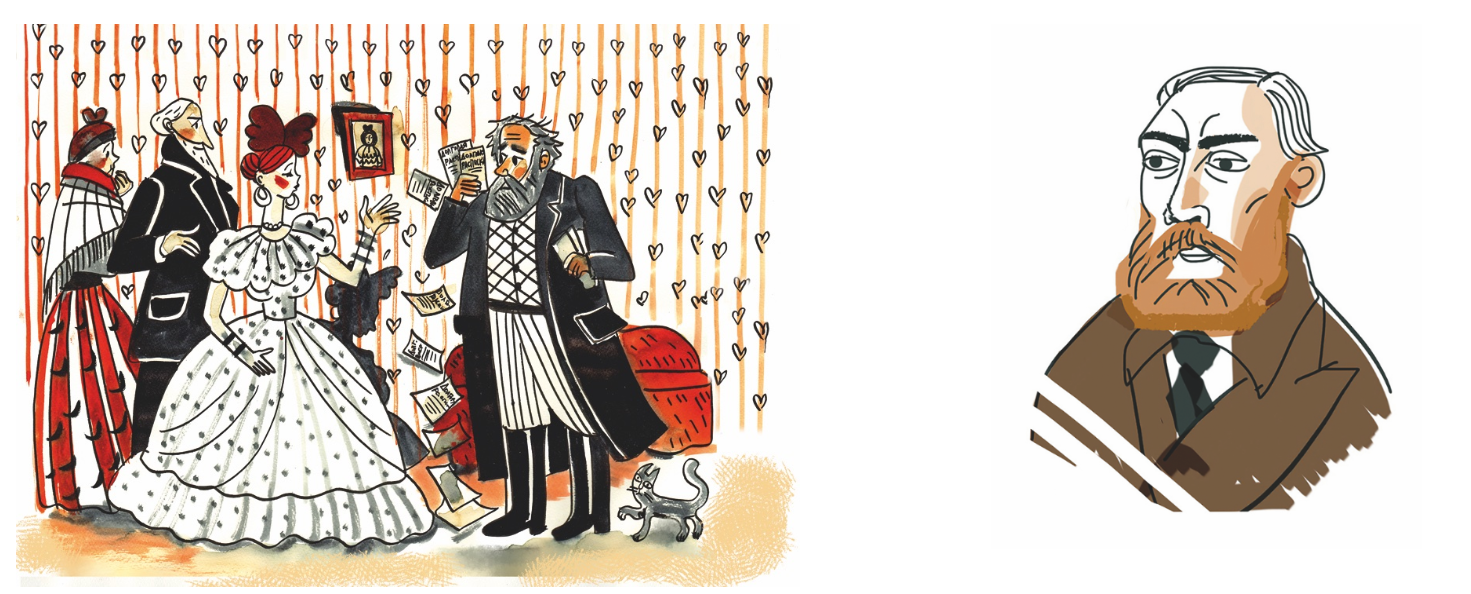"It’s a Family Affair—We’ll Settle It Ourselves" (1849)

It’s a Family Affair—We’ll Settle It Ourselves by Alexander Ostrovsky
Alexander Ostrovsky’s play It’s a Family Affair—We’ll Settle It Ourselves (1850) left no representative of official censorship indifferent—indeed, the playwright himself was placed under police surveillance. Emperor Nicholas I banned performances of the comedy and expressed regret that it had been published in the journal Moskvityanin. The young Ostrovsky was accused of seeking to offend the Russian merchant class, even as the comedy enjoyed unprecedented success with Moscow audiences. Not even high praise of the playwright’s literary skill from Nikolai Gogol and Ivan Goncharov could salvage the situation, and so the original version of the play was not staged until 1881.
At first glance, the plot is simple yet strikingly relevant: the wealthy merchant Bolshov intends to declare bankruptcy to avoid repaying a substantial debt. He lives by the principle “if you don’t cheat, you don’t sell,” hypocritically convinced that his cunning is unmatched. Arrogant Bolshov fails to see that his greatest enemies are not the law but people close to him, brought up in conditions of total hypocrisy, greed, avarice, capable of the most despicable deeds for personal gain.
His mercenary daughter Lipochka dreams of escaping her domineering father’s control and buying endless silk dresses. The chief schemer, the clerk Podkhalyuzin, is desperate to seize the merchant’s fortune and even agrees to a sham marriage with his benefactor’s daughter. The comedy’s ending is ironically tragic: Bolshov, after meticulously planning his fraud, shortsightedly transfers his entire estate to his son-in-law, only to be met with indifference and contempt upon his release from debtors’ prison. The young couple has no intention of helping the aging fool with his troubles.
In 19th-century Russia, declaring bankruptcy served as grounds for detaining the insolvent individual and establishing a special creditors' committee (конкурсная комиссия) to determine the bankruptcy type: fortuitous ('несчастное'), negligent ('простое'), or fraudulent ('злостное'). If the committee concluded the bankruptcy was fraudulent—that is, fictitious—a criminal case for forgery (подлог) would be initiated.
A bankrupt individual could negotiate with creditors to reach a settlement agreement (мировое соглашение) with partial debt repayment, which Bolshov managed to secure at a rate of twenty-five kopecks per ruble. Lipochka and Podkhalyuzin opposed this arrangement. Crucially, commercial credit in the 19th century operated under a distinct legal framework incompatible with modern principles: credit relations were established through oral agreements (устный договор), loans required no collateral, merchant reputation alone determined approval, and immediate family members were legally obligated to assist the debtor in repaying creditors. This explains why, in the play's finale, the cunning Podkhalyuzin—now dressed in a shabby frock coat—prepares to negotiate with creditors to minimize debt obligations.
Alexander Ostrovsky's comedy presents a lively and sharp perspective on the classical problem of relations between fathers and children. The traditional thesis about the inertia of the older generation, which refuses to understand the innovative ideas of the young, is framed by the playwright with a non-trivial argument: the conflict occurs precisely because representatives of the two generations are strikingly similar.
The merchant's irritation and astonishment upon his daughter's refusal to settle his debts are all the more surprising, since it was the father himself who cultivated in Lipochka's soul the seeds of philistinism and self-interest. In the play's finale, the playwright reveals the work's central idea: for every cunning person, there exists a wiser one.
Signs and Symbols in the Illustration
Legal Regulation of Bankruptcy in Mid-19th Century Russia